The most important skill to learn in today’s world is to know how to write a computer program. Today, computers have entered in almost every industry. Be it the autopilot in an aircraft or digital speedometer in your bike, computers in various forms surround us. Computers are extremely useful for an organization to scale up well. Gone are the days of pen and paper. Today, in order to store and access your information, you absolutely need computers.
The programming and developer communities are emerging at a rate faster than ever before. Various new programming languages are coming up that are suited for different categories of developers (beginners, intermediate, and experts) as well as for different use cases (web application, mobile applications, game development, distributed system, etc). Every beginner is puzzled with the question, "What programming language should I learn?" Let us take a look at best Programming Languages to learn in 2020 for a job and for future prospects:
1. Python
Python undoubtedly tops the list. It is widely accepted as the best programming language to learn first. Python is fast, easy-to-use, and easy-to-deploy programming language that is being widely used to develop scalable web applications. YouTube, Instagram, Pinterest, SurveyMonkey are all built-in Python. Python provides excellent library support and has a large developer community. The programming language provides a great starting point for beginners. Talking about those who are looking for a better job, you should definitely learn Python ASAP! A lot of startups are using Python as their primary backend stack and so, this opens up a huge opportunity for full-stack Python developers.
Yes, Python is that simple! Anyone who wishes to join a startup should master Python programming
- Creating and using classes and objects is easy thanks to OOP characteristics
- Easy to learn. Best language for beginners.
- Extensive library support
- Focuses on code readability
- Has the ability to scale even the most complex applications
- Ideal for building prototypes and testing out ideas faster
- Open-source with an ever-growing community support
- Provides support for a multitude of platforms and systems
- Very easy to learn and use
2. Java
Java is another popular choice in large organizations and it has remained so for decades. Java is widely used for building enterprise-scale web applications. Java is known to be extremely stable and so, many large enterprises have adopted it. If you are looking for a development based job at a large organization, Java is the language that you should learn. Java is also widely used in Android App Development. Almost any business today needs an Android Application owing to the fact that there are billions of Android users today. This opens up a huge opportunity for Java developers given the fact that Google has created an excellent Java-based Android development framework - Android Studio.
- An abundance of open-source libraries
- Automatic memory allocation and garbage collection
- Follows the OOP paradigm
- Has the stack allocation system
- A high degree of platform independence thanks to the JVM feature
- Highly secure due to the exclusion of explicit pointer and inclusion of a security manager responsible for defining the access of classes
- Ideal for distributed computing
- Offers a galore of APIs for accomplishing different tasks, such as database connection, networking, utilities, and XML parsing
- Supports multithreading
3. C/C++
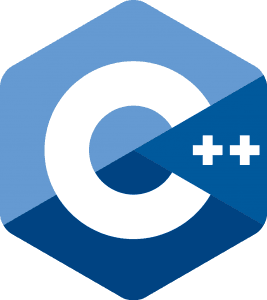 C/C++ is like the bread and butter of programming. Almost all low-level systems such as operating systems, file systems, etc are written in C/C++. If you wish to be a system-level programmer, C/C++ is the language you should learn. C++ is also widely used by competitive programmers owing to the fact that it is extremely fast and stable. C++ also provides something called STL - Standard Template Library. STL is a pool of ready-to-use libraries for various data structures, arithmetic operations, and algorithms. The library support and speed of the language make it a popular choice in the High-frequency trading community as well.
C/C++ is like the bread and butter of programming. Almost all low-level systems such as operating systems, file systems, etc are written in C/C++. If you wish to be a system-level programmer, C/C++ is the language you should learn. C++ is also widely used by competitive programmers owing to the fact that it is extremely fast and stable. C++ also provides something called STL - Standard Template Library. STL is a pool of ready-to-use libraries for various data structures, arithmetic operations, and algorithms. The library support and speed of the language make it a popular choice in the High-frequency trading community as well.- A galore of compilers and libraries to work with [C++]
- Eases accessing blocked or hidden objects by other programming languages [C]
- Faster execution of programs than most programming languages [C/C++]
- Forms the basis for understanding more complex programming languages [C/C++]
- Language of choice for multi-device, multi-platform app development [C++]
- Offers a great degree of portability [C]
- Procedure-oriented language with a group of function modules and blocks. These make debugging, testing, and maintaining the programs easier [C]
- Programs are more efficient and easy to understand [C/C++]
- Rich function library [C++]
- Runs close to the system hardware and hence, offers a low level of abstraction [C/C++]
- Support exception handling and function overloading [C++]
- Wide variety of application domains, such as games, GUI applications, and real-time mathematical simulations [C++]
4. JavaScript
JavaScript is the “frontend” programming language. JavaScript is widely used to design interactive frontend applications. For instance, when you click on a button which opens up a popup, the logic is implemented via JavaScript.
These days, many organizations, particularly startups, are using NodeJS which is a JavaScript-based run-time environment. Node.js lets developers use JavaScript for server-side scripting—running scripts server-side to produce dynamic web page content before the page is sent to the user's web browser. Hence now with JS, you can use a single programming language for server-side and client-side scripts. If you are looking for that cool tech job at your favorite startup, you should seriously consider learning JavaScript.
- Client-side JavaScript is very fast. It runs immediately within the web browser as there is no compilation requirement
- Gives a richer interface to a website
- Highly versatile
- It is the programming language of the web
- Reduced website server demand by virtue of being client-side
- Regular updates via the ECMA specification
- Several add-ons, such as Greasemonkey, for extending the functionality
- Simplistic implementation
- Plenty of resources and a mammoth community support
- Used for building a diverse range of applications
- Works exceptionally well with other programming languages
5. Go programming language
 Go, also known as Golang, is a programming language built by Google. Go provides excellent support for multithreading and so, it is being used by a lot of companies that rely heavily on distributed systems. Go is widely used in startups in Silicon Valley. However, it is yet to be adopted by Indian companies/startups. Those who wish to join a Valley-based startup specializing in core systems should master Golang.
Go, also known as Golang, is a programming language built by Google. Go provides excellent support for multithreading and so, it is being used by a lot of companies that rely heavily on distributed systems. Go is widely used in startups in Silicon Valley. However, it is yet to be adopted by Indian companies/startups. Those who wish to join a Valley-based startup specializing in core systems should master Golang.- Backed by Google
- Being a statically-typed language makes it more secure
- Cleaner syntax makes it easier to learn
- Comprehensive standard library offering a range of inbuilt functions for working with primitive types
- Ideal for building SPAs (single-page applications)
- Smart documentation
- Very fast as it is compiled to machine code
6. R
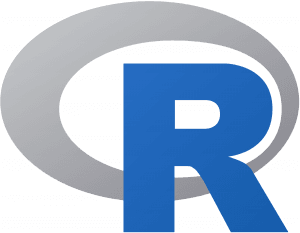 R programming language is one of the most commonly used programming languages for Data Analysis and Machine Learning. R provides an excellent framework and built-in libraries to develop powerful Machine Learning algorithms. R is also used for general statistical computing as well as graphics. R has been well adopted by enterprises. Those who wish to join “Analytics” team of a large organization should definitely learn R.
R programming language is one of the most commonly used programming languages for Data Analysis and Machine Learning. R provides an excellent framework and built-in libraries to develop powerful Machine Learning algorithms. R is also used for general statistical computing as well as graphics. R has been well adopted by enterprises. Those who wish to join “Analytics” team of a large organization should definitely learn R.- Ability to run seamlessly on various operations systems
- Active, mushrooming community
- Being open-source and free grants the ability to make tweaks as per the requirements
- Comprehensive statistical analysis language
- Highly extensible
- Powerful package ecosystem
7. Swift
 Swift is the programming language that is used to develop iOS applications. iOS-based devices are becoming increasingly popular. Apple iPhone, for instance, has captured a significant market share and is giving a tough competition to Android. Therefore, those who want to serve this community can learn Swift programming.
Swift is the programming language that is used to develop iOS applications. iOS-based devices are becoming increasingly popular. Apple iPhone, for instance, has captured a significant market share and is giving a tough competition to Android. Therefore, those who want to serve this community can learn Swift programming.- Automatic memory management prevents memory leaks
- Backed by Apple
- Better scalability allows easily adding functionalities to the product and/or bringing in additional developers
- Easy to add new features
- Encourages developers to write clean and readable code
- English-like syntax makes it highly readable
- Interoperable with Objective-C
- It is possible to integrate Server-side Swift with any technology
- Makes code sharing better and development process faster when used for both frontend and backend development
- Very fast as compared to other popular programming languages, such as Objective-C and Python
8. PHP
PHP is among the most popular backend programming language. Though PHP is facing tough competition from Python and JavaScript, the market still needs a large number of PHP developers. Those who wish to join a reasonably well old organization as a backend developer should aim to learn PHP programming.
- Abundance of powerful frameworks
- Easy to get started for making web pages
- First-class debugging with Xdebug
- Gigantic community support and a huge ecosystem
- Lots of automation tools for testing and deploying applications
- No scarcity of good automation tools for deployment and testing
- Supports object-oriented and functional programming paradigms
9. C#
C# is a general-purpose programming language developed by Microsoft. C# is widely used for backend programming, building games (using Unity), building Window mobile phone apps and lots of other use cases.
- As pointer types aren’t permitted, much safer than C and C++
- Ability to work with shared codebases
- Automatic scalable and updateable
- Component-oriented, object-oriented programming language
- Follows a syntax similar to the C programming language
- Fully integrated with the .NET library
- Ideal for all types of Windows development
- Rich sets of library functions and data types
- Supports type safety
- Quick compilation and execution times
10. MATLAB
MATLAB is a statistical analysis tool that is used in various industries for Data Analysis. MATLAB is used widely in the Computer Vision and Image processing industry as well.
- Eases developing scientific simulation thanks to a rich inbuilt library
- Functionality can be extended greatly by adding toolboxes
- High coding efficiency and productivity as it doesn’t require a compiler for execution
- Ideal for developing scientific research applications
- Matlab Coder allows converting code for using in other programming languages, such as C++, Java, and Python
- Platform-independent
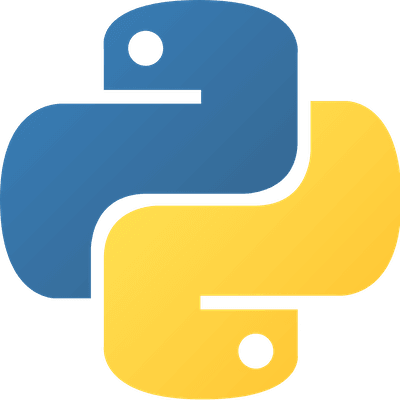
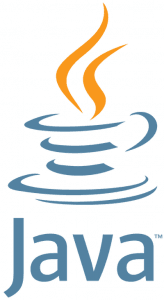
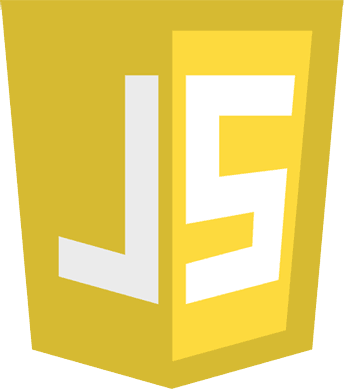

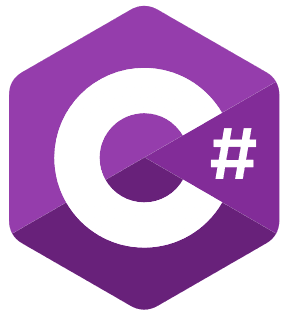

No comments:
Post a Comment